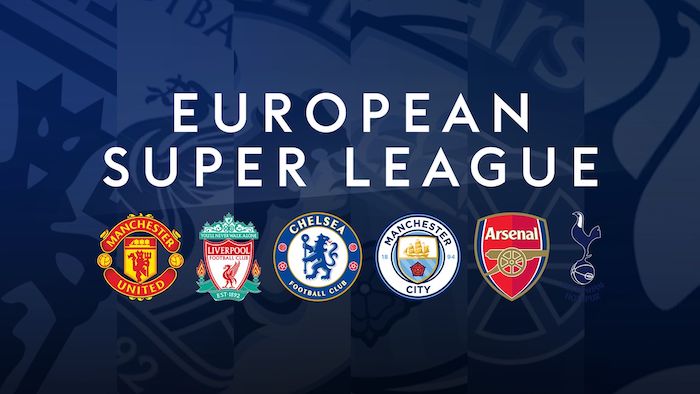
Premier League’s ‘Big Six’ Clubs Face Expulsion over European Breakaway Competition
England’s “big six” clubs are facing the threat of expulsion from the Premier League and European competitions after signing up to a breakaway Super League.
In what would be the biggest shake-up in the history of European club football, Manchester United, Liverpool, Arsenal, Chelsea, Tottenham Hotspur and Manchester City joined six other teams including Real Madrid, Barcelona and Juventus in the breakaway announcement, which would allow them to seize control of the vast revenue generated by broadcast and endorsement deals.
The development now pits Europe’s top sides against UEFA and domestic leagues in a dispute over the future of the game. Players who play in the proposed Super League have been told they will be banned from representing their countries in the European Championship and World Cup.
The Super League plan offers incentives of up to £303m ($540m) per club to 15 permanent members to join, with five other teams invited to take part every year.
Clubs could play 18 to 23 matches a season in the new competition, which would replace the Champions League and operate alongside domestic leagues such as the English Premier League.
The American owners of Manchester United (Joel Glazer), Liverpool (John W Henry) and Arsenal (Stan Kroenke) are key players and Glazer has been confirmed as a vice-chairman of the new league under the leadership of the Real Madrid president Florentino Perez.
Glazer said in a statement announcing the Super League’s launch: “By bringing together the world’s greatest clubs and players to play each other throughout the season, the Super League will open a new chapter for European football, ensuring world-class competition and facilities, and increased financial support for the wider football pyramid.”
Champions League: Manchester City’s young gun Phil Foden has scored the decisive goal against Borussia Dortmund to send them through to the Semi Finals.
It is understood the plan for the Super League would be for it to be launched in the 2022-23 season — though next season would be possible in extreme circumstances.
The Super League statement said: “Twelve of Europe’s leading football clubs have today come together to announce they have agreed to establish a new midweek competition, the Super League, governed by its founding clubs. It is anticipated that a further three clubs will join ahead of the inaugural season, which is intended to commence as soon as practicable.”
The German clubs Bayern Munich and Borussia Dortmund and French champions Paris Saint-Germain have not signed up to the plan.
An indication of the seriousness of the breakaway threat, and the bitter divisions it has caused, was highlighted by the fact that none of the 12 clubs participated in the ECA’s meeting on Sunday
The revelations led to a huge public backlash, led by united icons Gary Neville and Sir Alex Ferguson. British Prime Minister Boris Johnson described the plan as “very damaging”.
The Premier League held an emergency board meeting on Sunday and wrote to all 20 clubs, with chief executive Richard Masters calling for the rebels to “walk away immediately before irreparable damage is done”.
In a letter, Masters told the clubs that forming such a breakaway would be a direct breach of Premier League rules. Neville, the Sky Sports pundit and former United defender, said he was “disgusted by Manchester United and Liverpool the most”.
Ferguson, who is still on United’s board of directors, said: “Talk of a Super League is a move away from 70 years of European club football.”
UEFA, which controls European competitions, said the league was a “cynical project founded on self-interest” and threatened clubs with expulsion.
“The clubs concerned will be banned from playing in any other competition at domestic, European or world level, and their players could be denied the opportunity to represent their national teams,” UEFA said.
A Super League would be disastrous for the Champions League and would also be damaging for the other clubs in the Premier League who would be effectively blocked from the breakaway competition.
UEFA is due to confirm on Monday night its own proposed redesign of the Champions League, which includes an expanded group stage from 2024.

